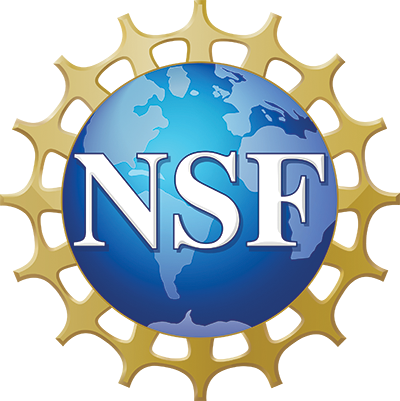
Seven leaders in computer science research, including the U.S. National Science Foundation (NSF) CI Compass’s Director and Principal Investigator Ewa Deelman, are calling for a long-term plan and comprehensive vision for high-performance computing (HPC) in the United States.
HPC systems are advanced computing cyberinfrastructure. They deliver massive processing power that can be utilized to advance research and technology in areas such as astronomy, earth sensing, engineering, transportation simulations, and business analysis and modeling. HPC is also the cyberinfrastructure behind many large language models (LLMs) and generative AI applications.
On February 20, 2025, in an article published in Science titled “High-performance computing at a crossroads: Long-term plans and comprehensive vision are needed,” computer scientists Deelman and co-authors, including Jack Dongarra, Bruce Hendrickson, Amanda Randles, Daniel Reed, Edward Seidel, and Katherine Yellick, open by stating:
“Over the past four decades, HPC has enabled considerable advances in scientific discovery and engineering, spurring technological development across the globe. However, with the demand for precision and fidelity of computational models continuing to grow, HPC faces bottlenecks in data handling, algorithm efficiency, and the scalability of new architectures, especially in fields such as chemistry and biology, where molecular simulations increasingly strain hardware and software limits.”
The piece comes at a crucial time- calling for planning and investment in the scientific computing research community while new national priorities are being shaped under the current federal administration.
“The rise of generative artificial intelligence (AI) has intensified the demands on HPC, transforming it from a resource primarily focused on physics-based simulations and large-scale scientific data analyses into a critical foundation for massive neural network training and inference,” the authors write.
AI is just one critical area where HPC is integral to the science.
Why Now?
The timing for the article’s publication comes amid dramatic changes to the way research is funded at the federal level in the United States.
“We started writing this article in mid-2024. We were concerned that after the successes of the deployment of exascale systems in the U.S., there was no vision and comprehensive plan on what to do next,” Deelman said. “Given some of the technological challenges that we outlined in the article, it is not feasible to just scale up the systems. We need to reimagine how the HPC ecosystem should look from the hardware level, through the software stack, the connections to distributed computing resources, and all the way up to applications in science, engineering, manufacturing, et cetera.”
Deelman, who is a research professor and the research director at the University of Southern California Viterbi’s Information Sciences Institute (USC ISI), has been conducting research in scientific workflows and leading the way on the design and development of workflow systems since 2000. In her work at the helm of NSF CI Compass, she both directs and is directly involved in work evaluating best practices and improvements of cyberinfrastructures of NSF Major and Mid-scale facilities, often built exclusively for the type of instrumentation at each site.
Preparing Future Generations
“Lack of progress in HPC puts U.S. competitiveness at risk in the race against countries with integrated public-private strategies,” the article states.
“A critical challenge is also the need for a well-trained cyberinfrastructure workforce, including researchers, software engineers, system operators, trainers, and educators,” Deelman said. “We need to do a better job attracting talent to work on cyberinfrastructure for science, engineering, and education. Sometimes college students who are thinking about their future do not realize how much interesting and fulfilling work is done in this area.”
NSF CI Compass’s undergraduate student offering, the CI Compass Fellowship Program (CICF), launched in 2022. In its pilot year, the program took on six students from center member institutions to learn about the cyberinfrastructure undergirding NSF major and mid-scale research facilities, their data lifecycles (the pathway of collection of data to processing and storage), and learning from CI practitioners in the field. From 2023 - 2025, the program has taken on approximately 20 undergraduates each spring semester to grow the program and the students’ exposure to opportunities in computer science, information science, applied mathematics and statistics, data science, embedded systems, and more.
Deelman helped found and shape the program, which is now led by Co-PI and CICF Director Angela Murillo, assistant director at the Luddy School of Informatics, Computing, and Engineering at Indiana University-Indianapolis.
“Given how much sophistication is on the technological front, we need to continually learn, train, and sharpen our critical thinking skills,” Deelman said. “There is a need to raise the sophistication of our education starting in K-12. As we have more technology, in general, and more AI, in our lives, we need to make sure that our kids are well prepared.”
Read the full article, “High-performance computing at a crossroads: Long-term plans and comprehensive vision are needed,” at science.org.
The authors included in the article are attributed as follows:
-
Ewa Deelman, Information Science Institute, University of Southern California, Marina del Rey, CA, USA.
-
Jack Dongarra, Department of Electrical Engineering and Computer Science, University of Tennessee, Knoxville, TN, USA; Oak Ridge National Laboratory, Oak Ridge, TN, USA; Department of Mathematics, University of Manchester, Manchester, UK.
-
Bruce Hendrickson, Computing Directorate, Lawrence Livermore National Laboratory, Livermore, CA, USA.
-
Amanda Randles, Department of Biomedical Engineering, Duke University, Durham, NC, USA.
-
Daniel Reed, Scientific Computing and Imaging Institute, University of Utah, Salt Lake City, UT, USA.
-
Edward Seidel, Office of the President, University of Wyoming, Laramie, WY, USA.
-
Katherine Yelick, Department of Electrical Engineering and Computer Sciences, University of California Berkeley, Berkely, CA. USA.
About CI Compass
CI Compass is funded by the NSF Office of Advanced Cyberinfrastructure in the Directorate for Computer and Information Science and Engineering under grant number 2127548. Its participating research institutions include the University of Southern California, Indiana University, Texas Tech University, the University of North Carolina at Chapel Hill, the University of Notre Dame, and the University of Utah.
To learn more about CI Compass, please visit ci-compass.org.
Contact: Christina Clark, Research Communications Specialist
CI Compass / Notre Dame Research / University of Notre Dame cclark26@nd.edu / 574.631.2665






